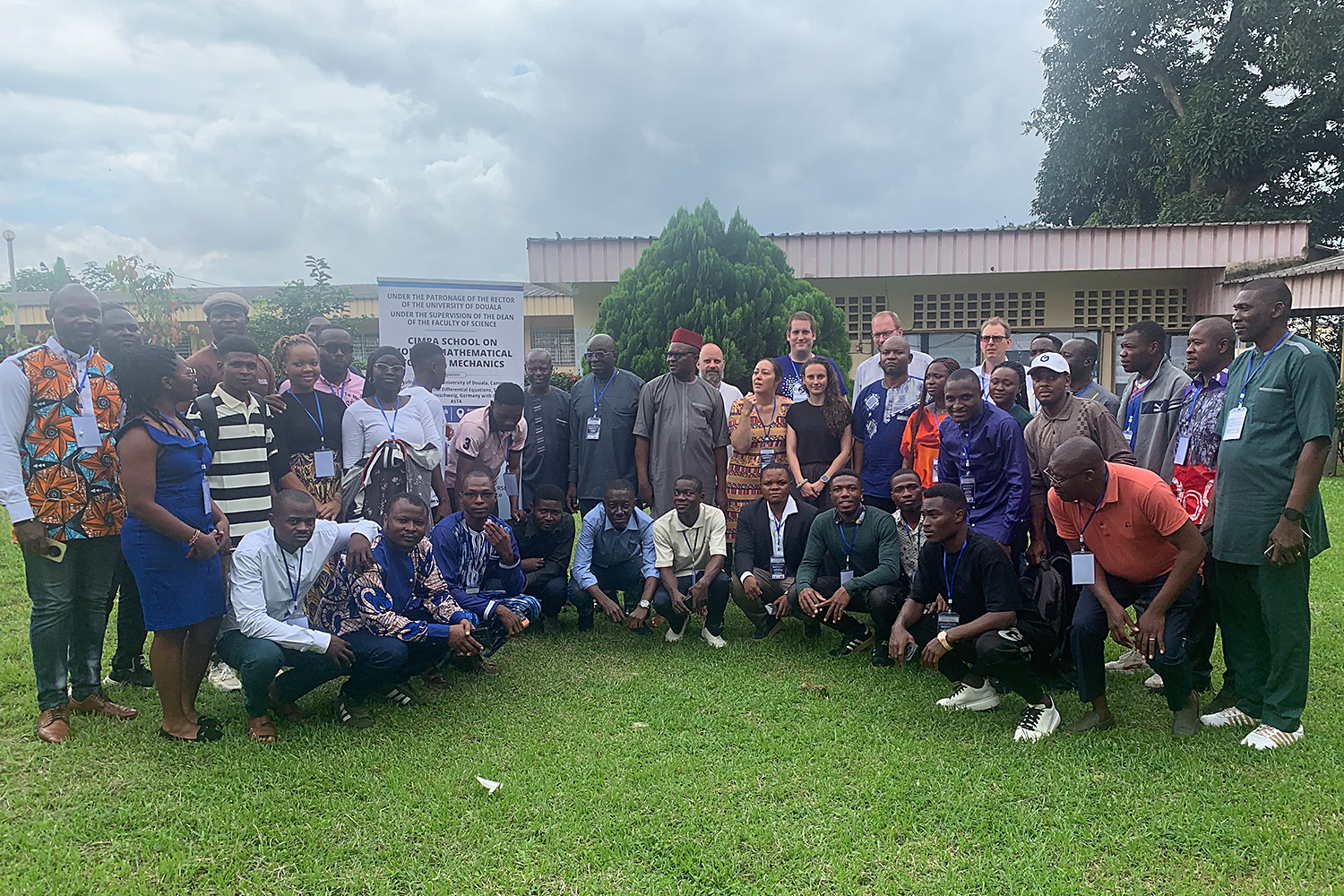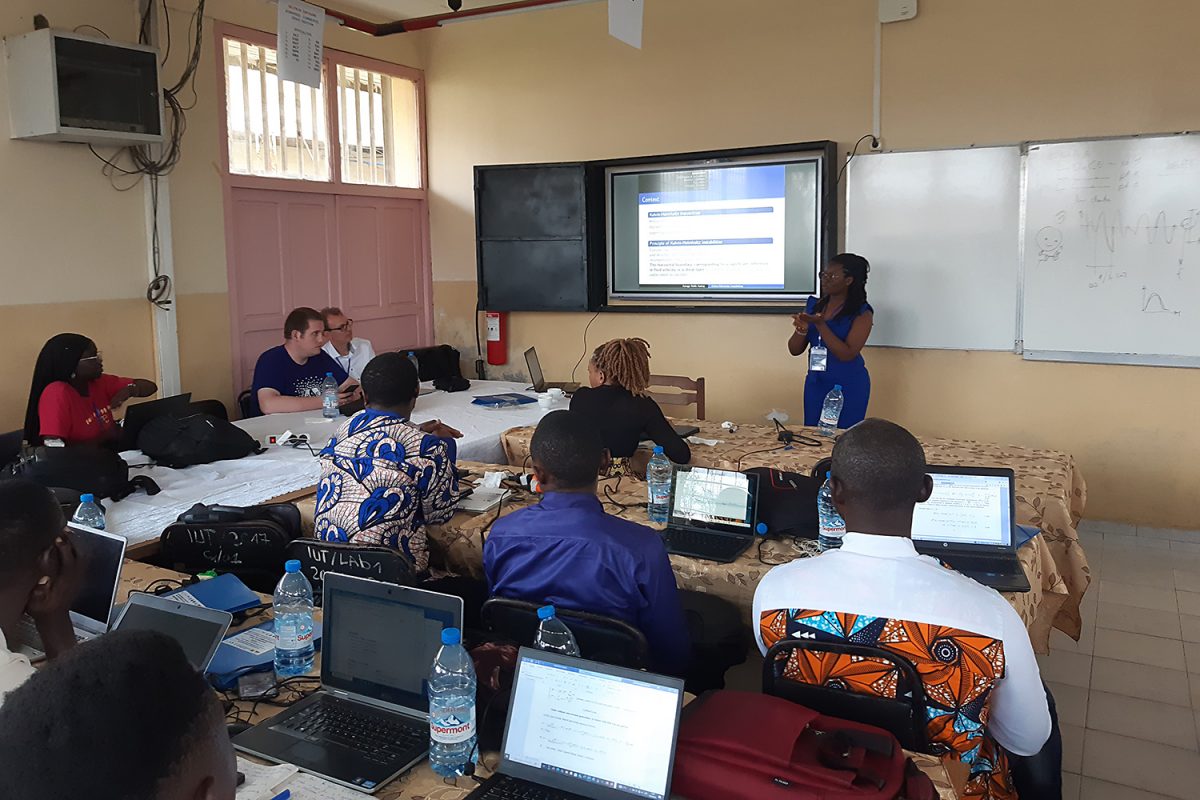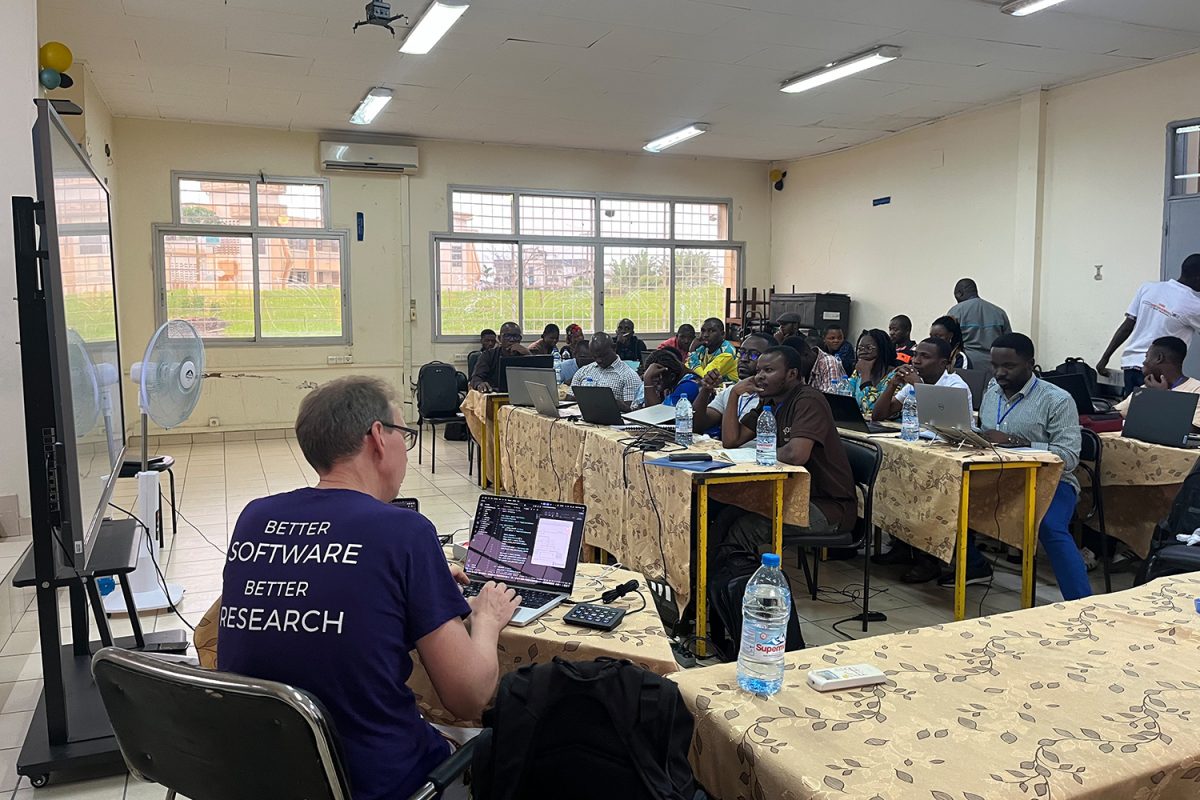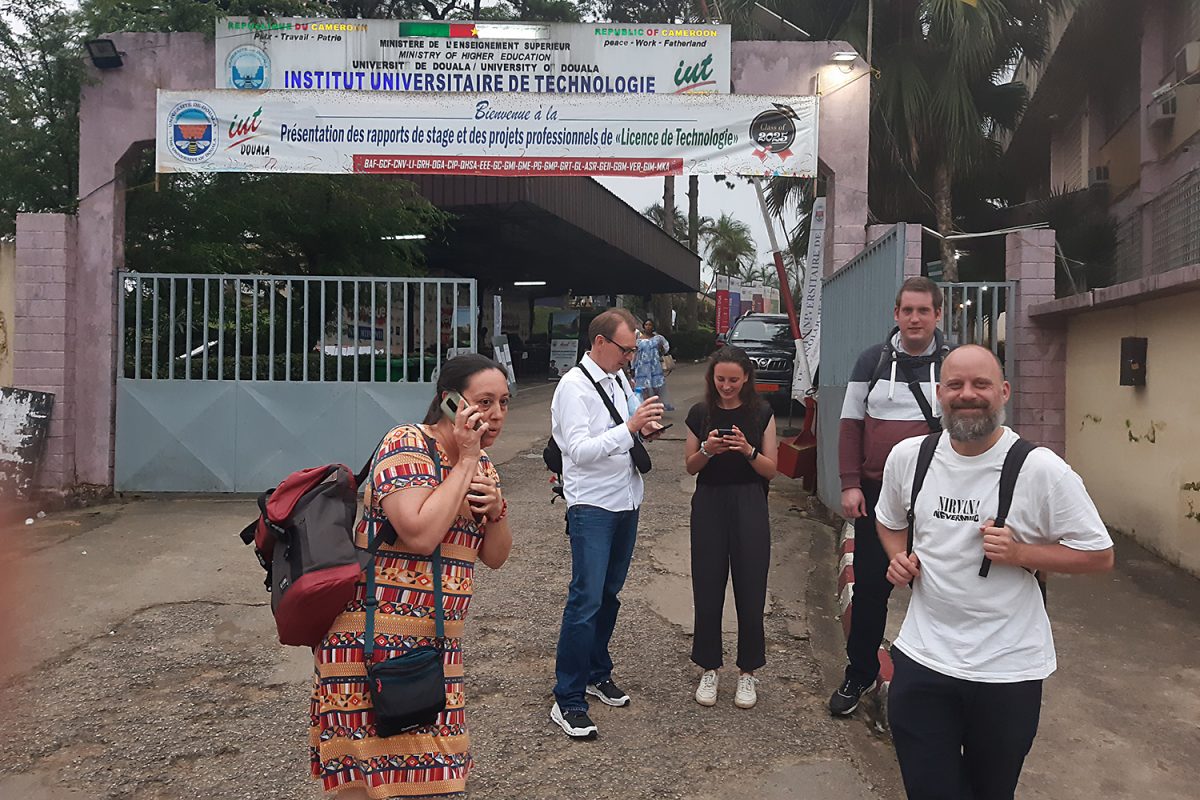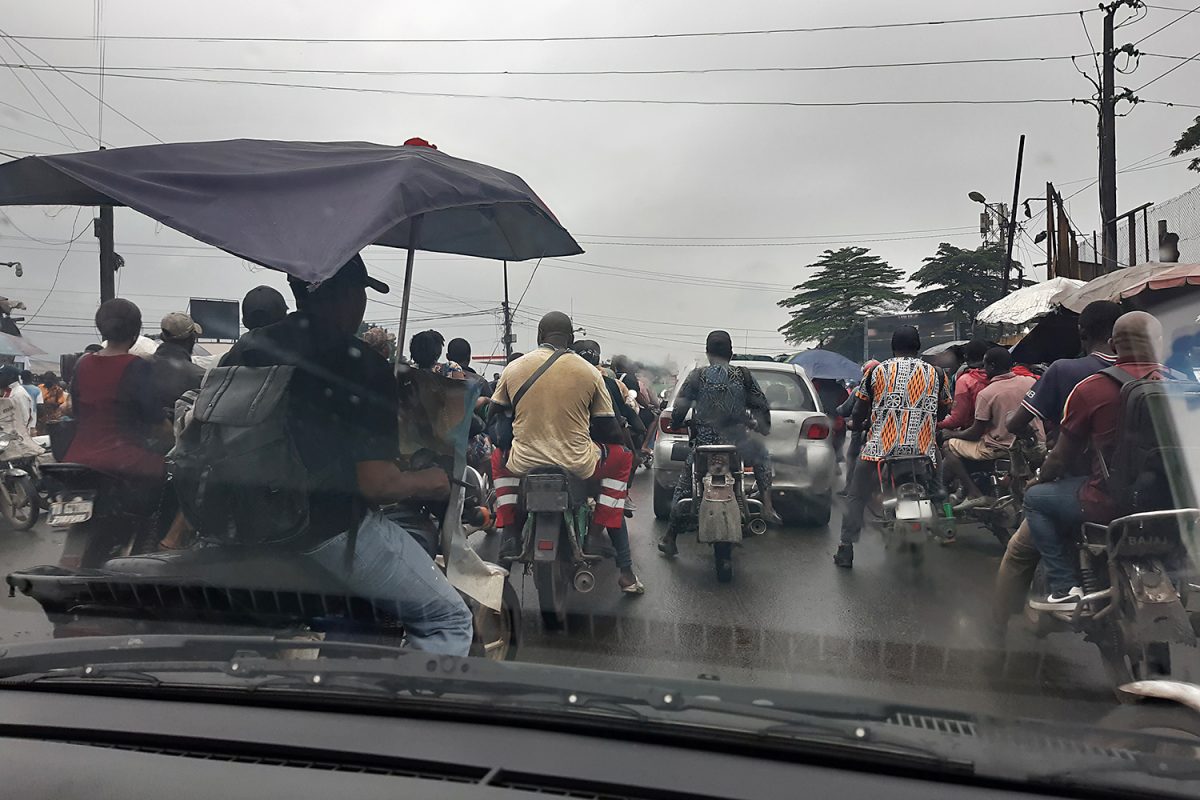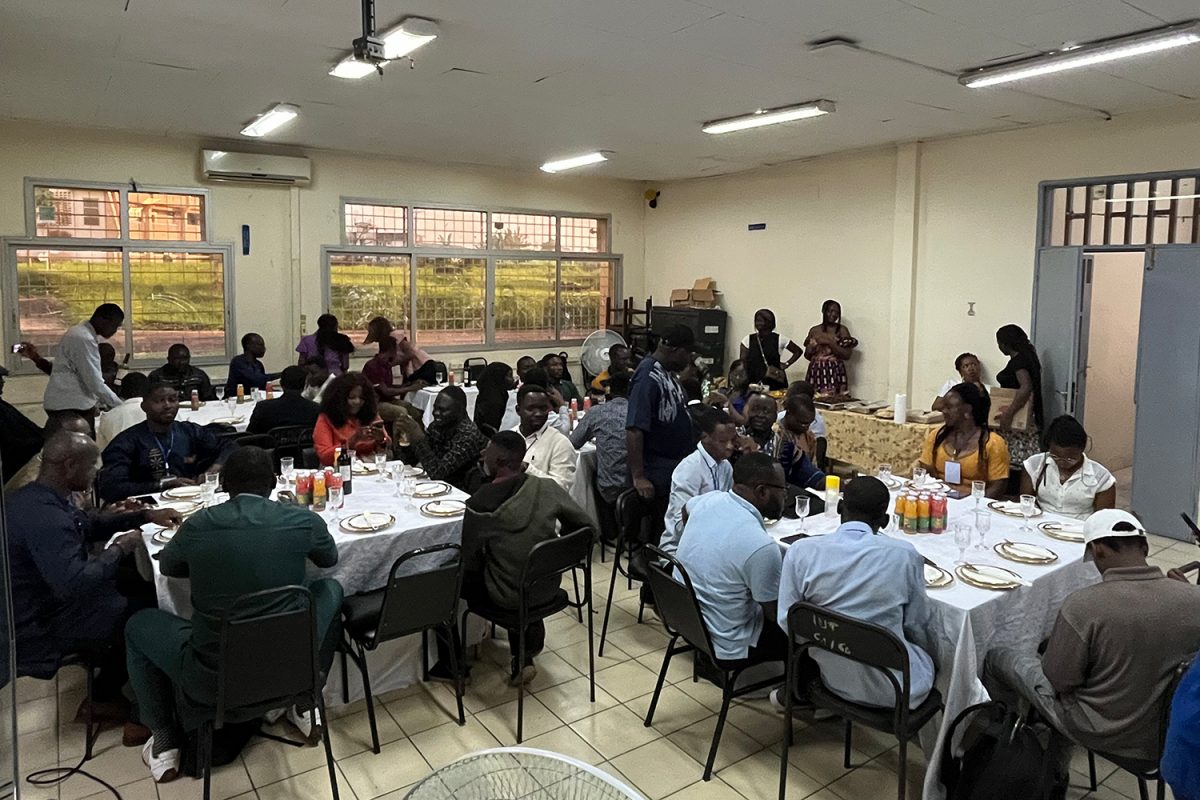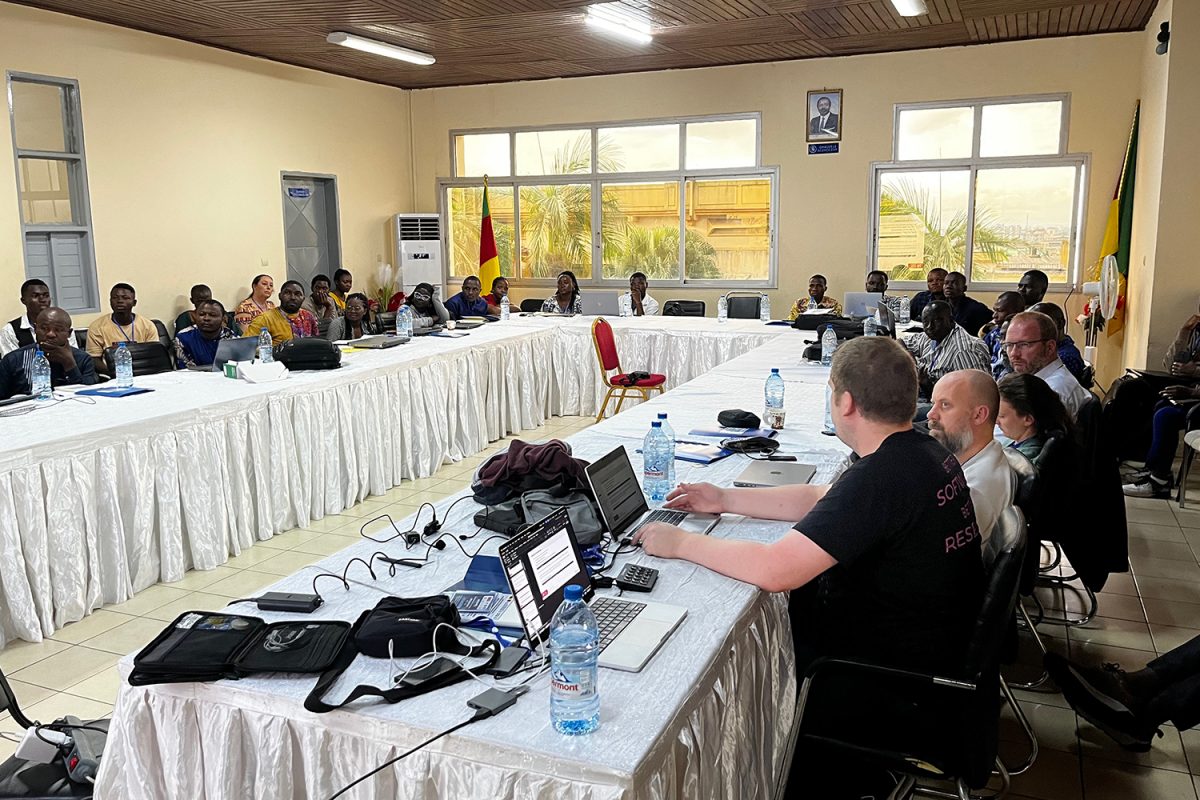Mathematics builds bridges to Cameroon Researchers organise summer school on modern mathematical models in mechanics
The commitment of five scientists from Technische Universität Braunschweig shows that internationalisation is not just a buzzword, but is taken literally. In Douala, Cameroon’s largest city, they organised a two-week summer school for students and doctoral candidates from Cameroon and other Central African countries. The focus was on the application of modern mathematical tools in mechanics. The idea for this came from a contact with Dr. Christian Kouam, who studied computational sciences in engineering in Braunschweig 25 years ago. The project was supported by the BMFTR and CIMPA (Centre International de Mathématiques pures et appliquées). Professor Dirk Langemann from the Institute for Partial Differential Equations describes his impressions here.
Around 35 Master’s and PhD students took part in the summer school, which was initiated by Dr. Jan Linxweiler and Dr. Jan-Philipp Thiele on the topic of research software engineering, Dr. Gabriel David on coastal engineering, and Katja Tüting and Professor Dirk Langemann on mathematical modelling. Numerous scientists from Douala in advanced stages of their careers joined for a few days to see how their colleagues in Braunschweig teach.
Fresh impetus was provided above all by the vivid examples, the mixture of individual and group work phases, and the joint teaching discussion. Discussions soon developed beyond the summer school: many participants dream of coming to Europe for a research stay or a doctoral position. The Cameroonian colleagues are also keen to collaborate, and around 20 of them travelled to the event – some from faraway cities – to discuss plans and possibilities.
Challenges in everyday university life
Everywhere in Douala, you see advertisements for German courses, sometimes between motorcycle taxis, sometimes between improvised stalls selling clothes, fish, pineapples or yams. Campus life in Douala can be challenging at times: tap water and Wi-Fi are only available to a limited extent on the university campus. Computers are powered by extension cables from neighbouring buildings, and power cuts are a daily occurrence. During the rainy season in September, heavy rainfall makes it difficult to hear in the lecture hall. Schedules are handled flexibly: a two-hour delay is often considered normal here.
Hierarchies and procedures also differ from German experiences. At first, it was unusual that announcing a coffee break alone was not enough until it was explained to the Braunschweig Summer School team that teachers go to the buffet first and only then do the students get up.
One topic that came up repeatedly was the belief in witchcraft. Many participants in the Summer School believe it to be real, and some think that one day it will be possible to explain it scientifically. After a mathematician from Cameroon pointed out that witchcraft itself is not a problem, but only its malicious use, the Braunschweig teachers drove through the unregulated traffic in a 40-year-old small car, which miraculously still works.
Cooperation in research and teaching planned
In the long term, the summer school could lead to new collaborations in research and teaching – the summer school team is working intensively on this. It was certainly a challenging and enriching experience for the travellers from Braunschweig, which brought a good 30 young people from Central Africa closer to the modern mathematical tools of mechanics.

